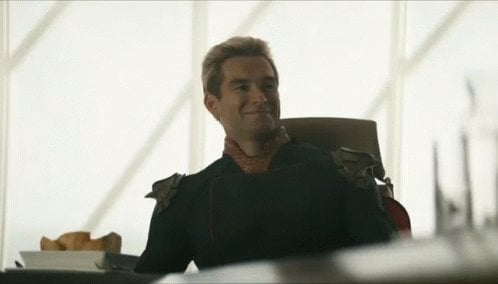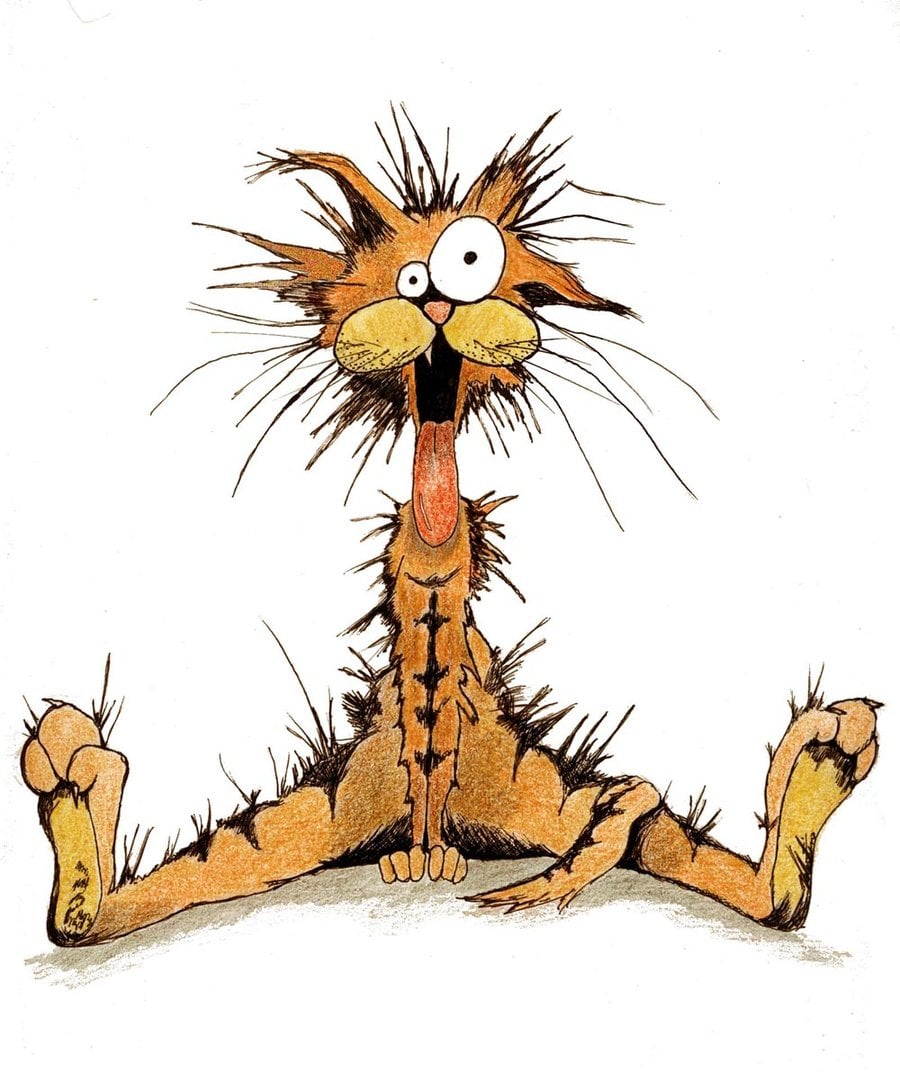Just to be well and truly fuckin clear. I am not now nor have I ever been nor will I ever be contemplating shagging a family member.
Human genes only really “work as intended” when they are combined from very different sets.
So-called “recessive” genes are overruled by your partner’s different pile of genes. They are usually shit traits like soggy bones or hair growing backwards, but since they never dominate, they haven’t been naturally selected away. They’re just harmless baggage.
You can still get them because it’s all random, but the likelihood is generally low.
If you don’t have that difference in mating genes, more of these recessive genes get to have a say in building the human. This severely increases the likelihood of birth defects.
https://en.wikipedia.org/wiki/Inbreeding
Fun fact: This is one of the reasons why - when we start colonies on the Moon or Mars or wherever - it’s important that we send a fuck ton of people.
Well, there’s a new insult: “You soggy-bones looking mother fucker.”
Drink milk

Can’t wait for next season
Or a fuck ton of, samples.
So, note for any women looking to colonize Mars, your womb will belong to the colony.
Not necessarily true. Presumably there would be a terms of service you’d know about before takeoff. And any of it could easily be voluntary rather than mandatory.
Each person sent costs a fuckton of fuel. Do you think they’d waste it on someone who will not contribute to expanding the population?
Yes. Nonetheless, I’d like to direct you to watch a scene in the series It’s always sunny in Philadelphia named “the implication” and try to apply it to Mars.
It’s 4 in the morning and I’m sick, got them albuterol inhaler shakes, and “soggy bones” made me laugh so hard I went into a coughing fit.
Swiss cheese theory.
Genes code for all the differnet protein molecules in your body; if any of them are damaged, they don’t produce that particular protein and your body is all messed up.
This is bad. Luckily, you have two strands of DNA, one from either parent - and a copy of each gene on either strand. If the copy of the gene you need on strand A is broken, no problem, you just use the copy from strand B (or vice-versa).
However, this relies on both strands having all their broken bits in different places.
Think of a slice of swiss cheese - if you need 100% cheese cover on your sandwich, and you have two randomly-selected pieces of swiss cheese, all the holes are going to be in different places, and you’ll probably be fine. Maybe there’ll be a couple of tiny gaps, but you’ll probably get by.
However, if both slices come from right next to each other n the same block, then most if not all the holes are going to line up with each other, and you are fucked.
If you had to repopulate the earth from a mass population decline… Would cloning better or inbreeding?
Cloning would avoid swiss cheese problems?
Cloning would be worse!
Cloning creates identical people with identical DNA. Identical DNA, identical defects, repeated over and over through the colony of twins, triplets, etc…
But it’s a small margin of improvement. Both cases, if the population pool is too small, you’ll eventually end up with sterility, severe mutations, and very early deaths, end of colony within a few generations.
If we had a massive population decline, yet, we did not have a global infrastructure collapse (so, magic instant death) then I believe some of the survivors would pretty quickly realize they need yo go find the cold storage of tons of semen samples.
Ah yes, mad max but not fighting over oil.
I’ll try to keep it relatively simple - your cells contain chromosomes that contain your genes. You usually* have two sets of every chromosome.
These genes come in different variations/mutant forms called alleles. Most alleles function more or less the same, but some malfunctions result in deformities.
If a malfunctioning allele results in errant gene inactivation, it is known as recessive, which means as long as your other copy works, you’re all good.
If a malfunctioning allele results in an errant gene activation, it is known as dominant, which means if you have the allele you get the deformity regardless of if your other copy works or not.
Fortunately for life, most malfunctioning alleles are recessive, so as long as you’ve got high genetic variance (a lot of alleles) in a population, the chance of two people meeting with the same recessive malfunction is low.
Incest can result in a drastic decrease in genetic variation, which can result in malfunctioning alleles becoming much more prevalent than they usually would be, resulting in many more cases of recessive deformities than in the wider population.
*For males this is not true of their sex chromosomes. Many genes present on the X chromosome are missing on the Y chromosome, which can lead to sex exclusive traits and diseases.
For example, it is the reason why there are almost no calico/tri-colour male cats, as the genes for it are in X but not Y chromosomes.
It’s mostly a game of chance.
Grossly oversimplified: Say you have black eyes, but carry a blue-eye gene (which doesn’t show because black is dominant). There’s a very good chance your sibling carries the same gene. If the two of you have a child together, there’s a higher chance that the kid will carry double blue genes and has blue eyes.
Had you had the kid with another black eyed person that’s not a sibling, there’s a higher chance that they may carry different genres (black, grey, brown, green eyes). So much lower chance of having a blue-eyed kid.
Imagine the same but with all sorts of physical and mental defects. They may not show in you, but if you carry the genes, there’s a good chance your sibling does too. Hence the higher chance of it showing up in your kids.
Even if the trait doesn’t show in your kids, over generations of inbreeding practice (common in old royal families) the bad genes would be so concentrated in the pool that so many defects will start showing up.
First you need to understand the difference between a dominant and a recessive gene. Dominant genes manifest if they’re present, recessive genes manifest only if there are no dominant genes present. A quick example is blood types, 0 is recessive, both A and B are dominant, you have two genes that specify your blood type, if both of them are 0 you are type 0, any other combination with 0 you’re not 0, i.e. 0A or A0 are A, while 0B or B0 are B. This means that a person with blood AB can’t have a son with blood 0, because his son will either have one A or one B inherited from that person.
Genetic diseases that happen because dominant genes are hard to miss, if you have the gene you have the disease, however genetic diseases that need recessive genes can be carried for generations without anyone manifesting symptoms. But of two persons have the same recessive gene it’s quite possible that their children will have both of the genes be that one and manifest the illness. The chances of two random people having the same recessive genes are quite slim, but the closer people are genetically the higher the chances that they have the same recessive genes. Using blood type as an example, if a parent is AB and the other is B0 their children have 0% chance of being 00, but they have a 25% chance of being A0 and 25% chance of being B0 (the other 25% being AB and BB). Now if their children A0 and B0 have a child of their own that child has a 25% chance of being born 00, whereas if any of them had a kid with a AB, AA or BB the chances would be 0%.
Does this mean that blood type O will become rarer over time and eventually disappear? Does it also imply that someone, like me, who is O- has a family tree with fewer branches on it than most people?
It is possible, but genetics is far more complicated than this. There are also the epigenetic factors for gene expression that is a field of ongoing research. Nothing is ever actually as simple as the example but it is a good example for illustration of the concept.
Many families have recessive fucked alleles that cause all kinds of problems. An allele is a variant of a gene. You need two copies of a recessive allele for that gene to be expressed (do something).
Every fucked allele the parents share has a 25% chance of being expressed in the child. The more DNA the parents share the more fucked alleles they share. Usually… sometimes the opposite happens and the number of bad alleles is reduced in the child. Inbreeding can lead to fucked animals and “perfect” ones. Weird stuff.
Now you might be thinking “why do families have so many fucked alleles?”
That’s a good question. The thing about carrying a single recessive, fucked allele is that it doesn’t do anything to you. Mutations happen all the time and so these alleles are floating around and multiplying constantly.
It’s only a problem on the odd chance that they get expressed which is most often when family members produce offspring.
So it’s worth noting that this is the type of thing that we can check for these days. In some cultures it’s acceptable to marry a cousin and I’ve heard that they check for any genetic issues before proceeding when they live in a first world country.
Resistive genes play a huge part, plus any transcription errors the are passed down don’t have a chance to get skipped with inbreeding
I manage a small closed queen breeding program and we have to try very hard to keep as much variation as possible
Interestingly, some species (naked mole rats for one,) are fairly immune to the problem.









